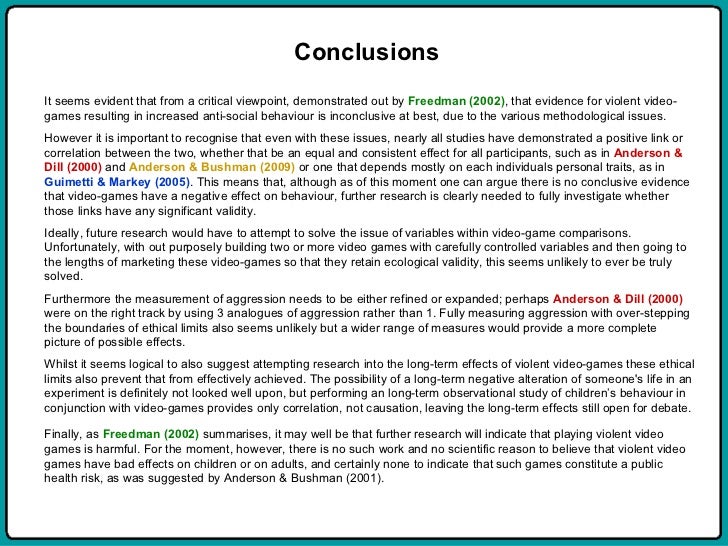Apr 22, · This resource covers American Sociological Association (ASA) style and includes information about manuscript formatting, in-text citations, formatting the references page, and accepted manuscript writing style. The bibliographical format described here is taken from the American Sociological Association (ASA) Style Guide, 5th blogger.com: Hilary Smith Jun 28, · APA Academic Writer (formerly Style Central) is the consummate tool for learning and using APA style for a wide range of users: undergraduates, graduates and faculty. APA Academic Writer offers a plethora of tools to facilitate the writing and research process and to ensure compliance with APA style based upon the content of a police report. Clarity in report writing is achieved by clear and logical organization of information, the judicious use of simple, common, and first person language, and effective writing mechanics. 4. Concise
Criminal Justice Degrees: Writing Skills Are Important | Columbia Southern University
Effective communication is vital no matter what you study, including criminal justice. In criminal justice writing style, law enforcement officers do far criminal justice writing style writing than many people think. Criminal justice report writing plays a central role in the field. Cops write arrest, crime, incident, and evidence reports, and they compose social media posts, community outreach posters, and internal memos.
Like everyone else, they also communicate using electronic correspondence, criminal justice writing style, including emails and texts. Because of the authoritative nature of police work, law enforcement communications must use clear, concise, and articulate language. These documents might appear in trials or be used to obtain warrants, making accuracy and clarity absolutely essential.
Good communication skills can also lead to promotion opportunities. Writing skills are just as important in other criminal justice professions, including teaching, law, forensics, and emergency management.
Criminologists write studies and research papers, teachers pen several types of documents, criminal justice writing style, and emergency management professionals compose community reports and preparation studies. Likewise, lawyers write countless communications, and forensic experts prepare reports on their findings. Anyone who wants to continue on to a master's, too, criminal justice writing style, benefits from effective writing skills.
Many colleges require applicants to write a personal statement. These short essays reveal the goals and intentions of students and can improve your odds of getting accepted into a preferred school. Admissions staff can quickly tell how well criminal justice writing style student writes, how much effort they put into their statement, and whether they can answer simple questions.
They can also compare an applicant's ambition and imagination with their peers. Many students find that writing about their own experiences, especially as they relate to their educational aspirations, leads to a successful essay. Criminal justice students, for example, could write about how volunteering with young, at-risk kids opened their eyes to the ways some children fall into a life of crime.
Others write about how reading the police blotter in their small town inspired them to invent a solution to a common problem. Keep in mind that college counselors read thousands of these essays, and carefully think about why they should choose you over others. Think about the average applicant and consider what sets you apart.
Put some time into your essay. Write an outline in which you lay out your points. Proofread what you write and consider getting professional help prior to submission.
Colleges look for statements that reveal the character of an individual. According to a survey of admissions counselors by the Guardian criminal justice writing style, they appreciate honesty, simplicity, introspection, and direct and confident language. They do now, however like punctuation errors, waffling, criminal justice writing style, or overblown language.
If admissions lists the personal statement as optional, make sure to set yourself apart by writing one, criminal justice writing style. Criminal justice programs often use long-form essay questions on exams, criminal justice writing style. These writing prompts ask students to compose essays on topics discussed in class.
Students must create thoughtful and clear answers using points of evidence along the way -- showing that they understand the material. Students often do not get the questions ahead of time, which means they must not only study for the exam but answer on the spot. Students can make essay questions must easier by taking simple steps. First, make sure you read the question closely and understand it's requirements. Jot down a one- or two-sentence thesis that answers it. Afterward, compose a brief outline, sketching out your three main points and making sure that they address the question clearly, criminal justice writing style.
Fill in each point with a few pieces of evidence. This will keep you focused as you write. Reread the essay after completing it. Criminal justice writing style editing, look for grammatical or thematic errors, keeping the specifics of the question in mind as you read.
Your first draft will almost always have mistakes, so criminal justice writing style sure you leave enough time to proofread! At some point, almost every college student needs to write a research paper.
These long-form reports generally require you criminal justice writing style thoroughly explore a topic, investigating it from a variety of angles and writing about your findings. Research papers share similarities with essays, and some can take the form of an essay.
However, research papers differ in that they typically involve articulating someone else's point of view. The thesis of an essay tends to take a personal note and is chosen beforehand, but a research paper presents the end result of the exploration, analysis, and evaluation of an idea or theme.
The Purdue Online Writing Lab suggests that you think of a research paper as a living document that will grow and change as you interpret your data, criminal justice writing style. A good research paper begins with the selection of a topic.
People list differing ideas about how to write a criminal justice research paper, but there is no shortage of topics. Ideas could include the relationship between mental health and crime or drugs and recidivism. You might look at the ethics of mass incarceration or study police brutality. Your paper could investigate whether data-driven policing serves as another form of profiling or explore changes to the Fourth Amendment in law enforcement.
Once you decide on a main idea, you need to research several primary and secondary sources. After thoroughly investigating your topic, draw an outline, laying out your primary points logically, criminal justice writing style. A research paper usually has an introduction, a review or discussion of methodology, a section on results, and conclusions you can draw from the research.
At the end, list your sources and references. After writing the outline, compose the first draft. Write thoughts as they come within each section, knowing that you can go back and edit for clarity and simplicity later. Make sure you present sound arguments and qualitative research. Many people find it easier to write the introduction after writing the body of the paper. Like other forms of writing, essays come in several forms. Most students, for example, write a personal essay for their college application and later write persuasive essays in their classes.
Professors might ask for narrative essays or comparative ones, or any of the types below -- each of which requires a different way of thinking and writing.
Students should cite the works that they use in their papers. Citing shows the reader that you've done your research, and gives criminal justice writing style the tools to check your facts.
It demonstrates that you used sources knowingly and acknowledge the work you reference. Not only do colleges require this of students, but students themselves can immunize themselves from plagiarism through citation.
Plagiarism, whether intentional or not, puts an ugly stain on one's academic career. It can lead to probationary status or even expulsion, and it can make getting into another school difficult. It's your duty to know where your information comes from and to make sure you cite your work properly. A group of psychologists, anthropologists, and business leaders designed the APA style in They wanted to set clear and straightforward standards for scientific writing so that academic writers used the same format.
Everyone would cite things the same way, using common punctuation, numeration, tables, and figures. APA style caters to fields like psychology, nursing, and business. Many in criminology and sociology also use APA criminal justice writing style. For citations, APA differs slightly from other major styles, such as MLA.
For example, when referencing an author, MLA uses last name and first name e. Mayo, Matthewwhere APA uses criminal justice writing style name and first initial e. Mayo, criminal justice writing style, M. The in-text citation looks like this: Mayo,p. Always place the in-text citation after the last word of the sentence but before the final punctuation mark.
The reference list at the end of the paper includes the full citation: Mayo, M. Stranded--A Story of Frontier Survival. Waterville, ME: Five Star Publishing. The Chicago Manual of Style dates back to and the founding of the University of Chicago Press. Typesetters and editors at the publisher created a style sheet, which they distributed to their professors and authors. By standardizing the manuscripts coming in, they could simplify the cumbersome typesetting process.
The style sheet became a pamphlet and grew into a book, now in its seventeenth edition. Business, history, and fine arts departments typically use Chicago style.
Many publishers also use this style. Chicago style cites things differently than APA, employing footnotes and often including a bibliography at the end of the publication. In the text, you place a numerical footnote number after the reference. The bibliography at the end of the paper includes the full citation: Matthew P.
Mayo, Stranded--A Story of Frontier Survival. Waterville, ME: Five Star Publishing, The Modern Language Association MLA created its style specifically for academic writing.
Language studies, comparative literature, English, and media and cultural studies typically use MLA style. The MLA presents its guidelines and standards in its MLA Handbook for Writers of Research Papers. Like with APA style, in MLA writers cite the author and source in parentheses within the text after each reference and collects the full citations at the end of the paper in a "Works Cited" section.
What Will I Learn: Criminal Justice
, time: 2:16Why Writing Skills Are Important in Criminology

based upon the content of a police report. Clarity in report writing is achieved by clear and logical organization of information, the judicious use of simple, common, and first person language, and effective writing mechanics. 4. Concise Dec 08, · What You’ll Be Writing in Criminal Justice Reports and Narratives. When responding to criminal (or suspected criminal) activity, you will be expected to draft a Studies and Research. Not all criminal justice careers are in law enforcement. In some cases, you may be working for an Internal Apr 22, · Careers in criminology and criminal justice certainly require a wide variety of skills. Among the most important skills and abilities, those looking for jobs in criminology will need, no matter their specific field, is the ability to communicate in various forms. Written language is perhaps the single most valuable skill career seekers should possess

No comments:
Post a Comment